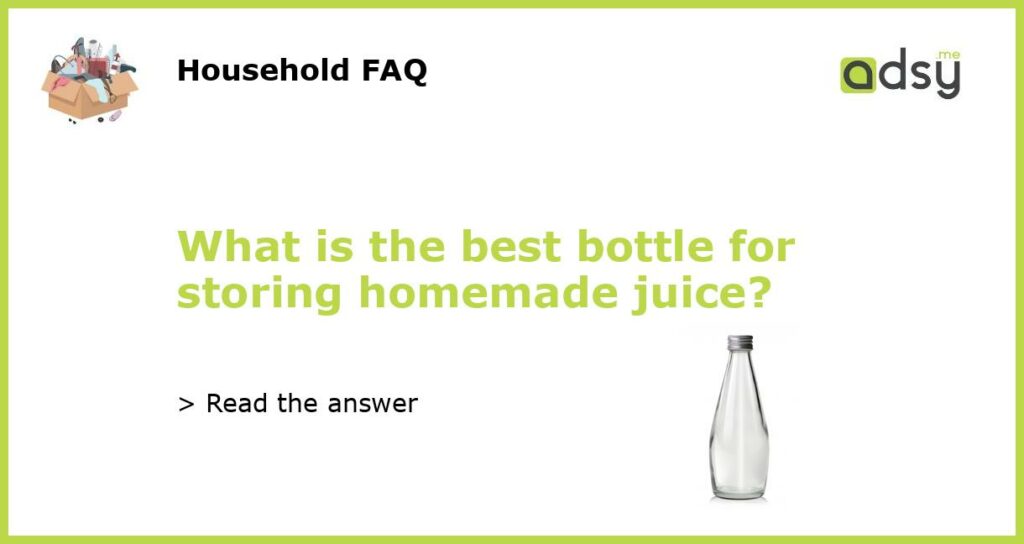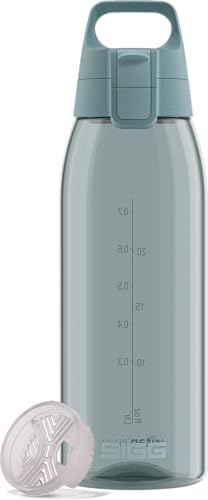Factors to Consider When Choosing a Bottle for Storing Homemade Juice
Homemade juice is a healthy and delicious beverage that you can enjoy at any time. When making juice at home, it is important to store it properly to maintain its freshness and quality. One crucial factor in storing homemade juice is choosing the right bottle. Here are some factors to consider when selecting the best bottle for storing homemade juice:
Material
The material of the bottle is an important factor to consider when storing homemade juice. Glass bottles are a popular option as they are non-reactive and do not leach any harmful chemicals into the juice. They also offer a clear view of the content, allowing you to easily check the freshness and quality of the juice. Additionally, glass bottles can be easily sterilized, ensuring that no bacteria or contaminants are present.
Alternatively, you can opt for high-quality food-grade plastic bottles. When choosing plastic bottles, look for those that are BPA-free and made from materials that are specifically designed for storing food and beverages. It is important to avoid using low-quality plastic bottles that may release harmful chemicals into the juice.
Size and Capacity
The size and capacity of the bottle should be determined based on your juice consumption. Consider how much juice you make at a time and how frequently you will be consuming it. If you plan on making larger batches of juice or if you have a family, it may be more convenient to choose larger bottles with a higher capacity. On the other hand, if you prefer to make smaller quantities or if you are the only one consuming the juice, smaller bottles may be more suitable.
It is important to note that storing juice in larger bottles may result in faster oxidation and spoilage due to increased exposure to air. If you opt for larger bottles, ensure that they have airtight seals or lids to minimize air contact and extend the shelf life of the juice.
Airtightness
Airtight bottles are essential for preserving the freshness and quality of homemade juice. When juice comes into contact with air, it begins to oxidize, leading to loss of nutrients and flavor. Airtight bottles prevent air from entering the bottle and help to maintain the juice’s freshness. Look for bottles with tight-fitting caps or lids that create a secure seal.
Additionally, consider bottles with features such as vacuum seals or airtight gaskets. These features provide an extra layer of protection against air and help to prolong the shelf life of the juice. It is also important to check for any leaks or loose fittings to ensure that the bottle is truly airtight.
Light Protection
Exposure to light can negatively impact the quality and taste of homemade juice. Sunlight and artificial light sources can degrade the nutrients and alter the flavor of the juice over time. To prevent light damage, choose bottles that are made of dark-colored glass or come with UV-protected coatings. These features protect the juice from harmful light rays and help to preserve the quality of the juice for longer periods.
Ease of Cleaning
When choosing a bottle for storing homemade juice, it is important to consider the ease of cleaning. Bottles with narrow openings may be difficult to clean thoroughly, making it harder to remove any residual pulp or debris. Opt for bottles with wide openings that allow for easy access when cleaning. Glass bottles are generally easier to clean than plastic bottles, as they are less likely to retain odors or stains.
Additionally, consider bottles that are dishwasher-safe for added convenience. Ensure that all parts of the bottle, including the cap or lid, can be easily disassembled and cleaned to maintain hygiene and avoid any build-up of bacteria.
By considering these factors – material, size and capacity, airtightness, light protection, and ease of cleaning – you can choose the best bottle for storing homemade juice. Storing your juice in the right bottle will help to maintain its freshness, quality, and nutritional value, allowing you to enjoy it to the fullest.






